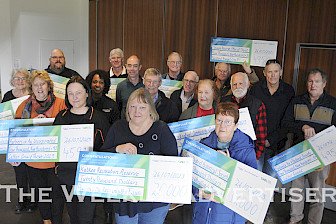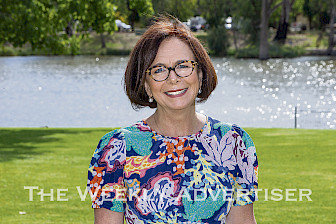Regional Development Australia Grampians chairman Stuart Benjamin has joined Liberal Senator Sarah Henderson in leading a push to overturn a ban on domestic roaming.
Mr Benjamin said a barrier preventing Australian mobile-phone users roaming between signal towers was putting lives at risk, especially during bushfire crises and other natural disasters.
The practice is restricted to foreign mobile-phone users who can jump between Telstra, Optus, Vodafone or other operators’ towers.
Mr Benjamin said he and Minister Henderson wrote to Australian Competition and Consumer Commission, ACCC, and Federal Communications Minister Paul Fletcher to look into the issue.
“Australia being such a large country, it’s insane that every time we fix a black spot, we have to put in three different towers for three different networks,” he said.
“Given that natural disasters are becoming more frequent we think it’s time for the government to step in, regulate and force the change.”
The ACCC has ruled on three occasions in the past not to extend the same rights to domestic users.
However, Mr Benjamin said he had more confidence the regulator would take the request more seriously.
“A lot has changed in the past five years since the ACCC last looked at this issue – it’s time to have a look at it again,” he said.
“We’re very confident something is going to change.”
Mr Benjamin said a major storm in Victoria’s east last month and bushfires devastating large expanses of East Gippsland region early last year where telecommunications were seriously affected highlighted a need for data roaming changes.
“In the recent storm at Dandenong Ranges, where there were evacuation orders issued by the Vic Emergency app, people weren’t getting notified because they had no connectivity,” he said.
“We’ve trained the population to rely on the emergency app after it was launched three years ago and now we live our lives by it. But it only works if you’ve got data.
“For Telstra to say they aren’t prepared to share their network in an emergency situation is reprehensible.”
Mr Benjamin said injury or deaths on farms in the Wimmera-Mallee could also be prevented with better telecommunication agreements between major providers.
“If your tractor rolled and you’re pinned under it you can ring triple zero, which is open to all users, but you might not be able to call family members who are two kilometres away to come and help you,” he said.
The Federal Government has invested more than $836-million in more than 1200 new base stations across Australia, as part of a Mobile Black Spot Program.
The government announced $34.5-
million for round 5A of the program late last year and a further $80-million for round six.
Mr Benjamin said despite millions of dollars of investment in infrastructure across Australia, there were still major mobile-service gaps across rural and regional Victoria.
“Five years ago, we were using 3G. Since then, we’ve had 4G and 5G and we continue to have bad reception,” he said.
He said he believed a cheaper solution for telecommunications companies would be to invest in one tower and open up data roaming opportunities for the rest of the network.
“The reason you have a black spot is because it’s not worth the operator building a tower there,” he said.
“We’re saying if the operator opened the market for all users, where people could use any tower and just pay for the privilege, they’re going to get all of the customers and all of a sudden the business case changes.”






